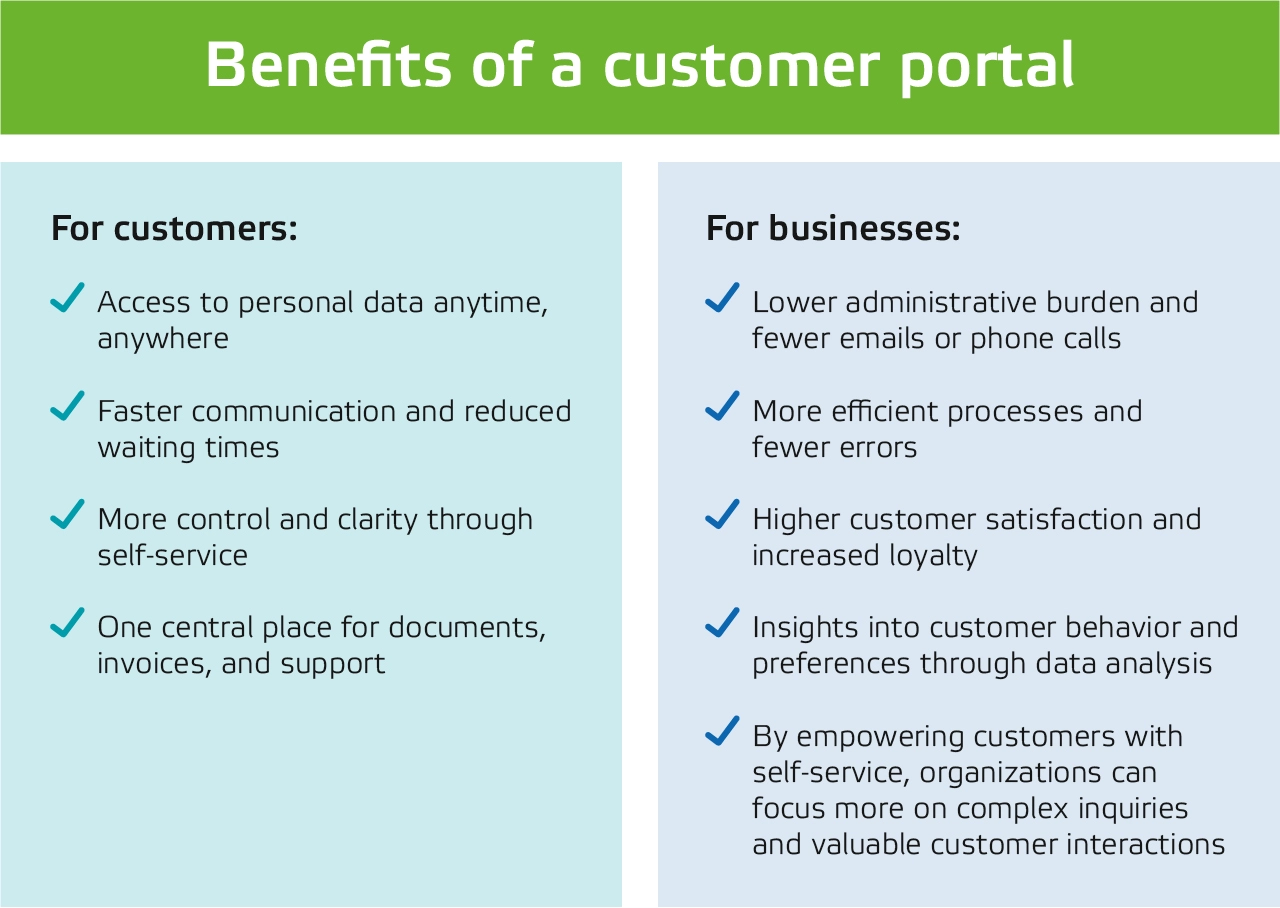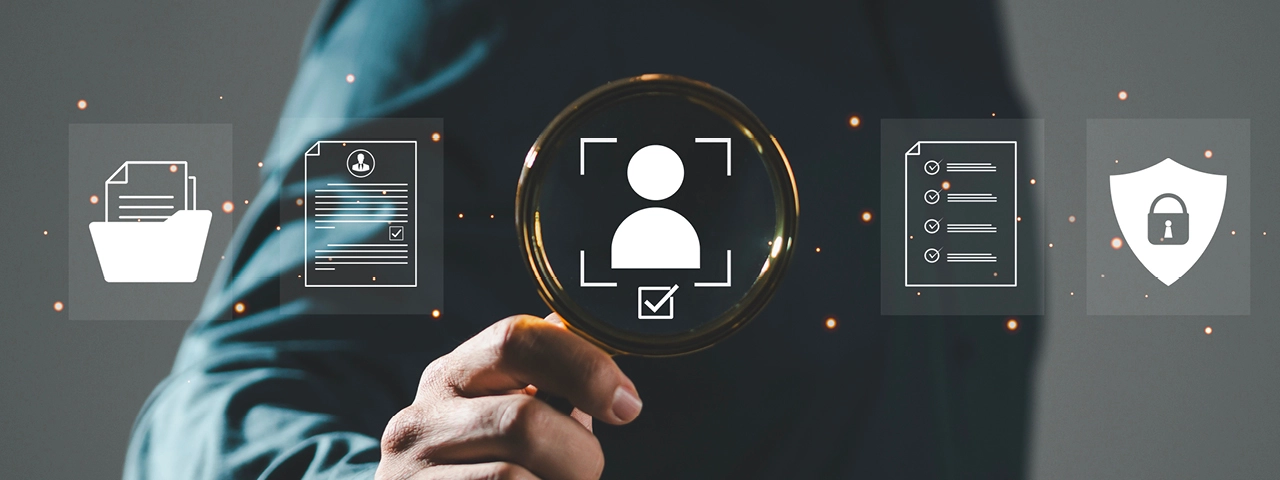What is customer portal and what can businesses do with it?
May 14, 2025
Stefan Grevelink

A customer portal is a secure online environment where customers can access personal information, services, and communication with an organization. The portal functions as a digital self-service desk and is available 24/7 via a web browser or app. Instead of using emails, phone calls, or paper documents, customers can use the portal to retrieve information, submit requests, or track the status of their cases.
Customer portals are increasingly used by organizations looking to digitize and enhance their services. Examples include healthcare institutions, government agencies, financial service providers, and software companies.
Benefits for customers and businesses
A customer portal offers a modern, efficient, and user-friendly way to organize service delivery. It provides clear advantages for both the end user and the organization.
For customers:
- Access to personal data anytime, anywhere
Customers can log in at any time to view or update their information, without being limited by office hours or needing assistance from staff. - Fast and direct communication
Questions are answered more quickly through the portal, with fewer wait times and less need for redirection. Status updates are easy to track. - More control and clarity through self-service
Customers manage their affairs independently, whenever it suits them. This includes updating information, requesting services, or tracking progress. - One central place for everything
Documents, invoices, support requests, and communication are clearly organized in one secure online environment.
For businesses:
- Reduced administrative workload
Customer self-service leads to fewer emails, phone calls, and manual tasks for employees. - More efficient processes and improved data quality
Information enters the system directly via the portal, eliminating the need for manual data entry and reducing the risk of errors. - Better customer satisfaction and increased loyalty
A user-friendly portal enhances convenience and satisfaction, strengthening customer relationships. - Valuable insights through data analysis
Portal usage provides visibility into customer behavior, preferences, and pain points—offering valuable input for improvement and personalization.
By empowering customers to help themselves, organizations can focus more on complex issues and meaningful customer interactions.

Key features of a customer portal
A customer portal can offer various functionalities depending on the type of organization. Some common examples include:
-
Personal dashboard with customer data and notifications
-
Viewing and paying invoices and payment history
-
Uploading and downloading documents
-
Creating and tracking support tickets
-
>Managing appointment scheduling or requests
-
Product- or service-specific features, such as contract management or project statuses
The strength of a customer portal lies in its flexibility and customization options: the portal can be tailored to the needs of both the customer and the business processes.
Integration with existing systems
An effective customer portal doesn’t operate in isolation but integrates with existing systems such as:
-
CRM systems for customer information and communication
-
ERP systems for order and inventory management
-
Accounting software for invoicing and payment processing
Thanks to these integrations, the information in the customer portal is always up-to-date, consistent, and reliable. Additionally, it prevents duplicate entries and manual tasks, which improves both efficiency and data quality.

Security and privacy in customer portals
Security and privacy are crucial aspects of any customer portal. Customers trust your organization with their personal data, so you must demonstrably handle data protection with care.
Important security measures include:
-
Encrypted data transmission (SSL/TLS)
-
Two-factor authentication (2FA)
-
Role-based access control (RBAC)
-
Logging and monitoring of access
-
Regular security testing and updates
Additionally, the portal must comply with privacy regulations such as the GDPR, including clear consent and data deletion procedures.
The future of customer portals: self-service and AI
The future of customer portals lies in increased self-service and intelligence. More and more portals are being equipped with:
-
Advanced self-service features, such as automation of recurring tasks
-
AI support, for example through chatbots or predictive analytics
-
Mobile accessibility and integration with apps
-
Personalization based on customer data
-
Real-time communication and notifications
By embracing these trends, customer portals remain relevant, scalable, and valuable—for both users and organizations.

Author of this blog
Stefan Grevelink
Stefan specializes in web development and custom software. With years of experience, he develops and oversees digital solutions such as complex websites, web applications, and system integrations that are reliable, scalable, and future-proof. He translates technical challenges into practical solutions that genuinely help businesses grow.
Do you not check our website daily for the latest tips? No problem! You can also follow us on our social media channels. We regularly share updates, useful facts and a behind-the-scenes.